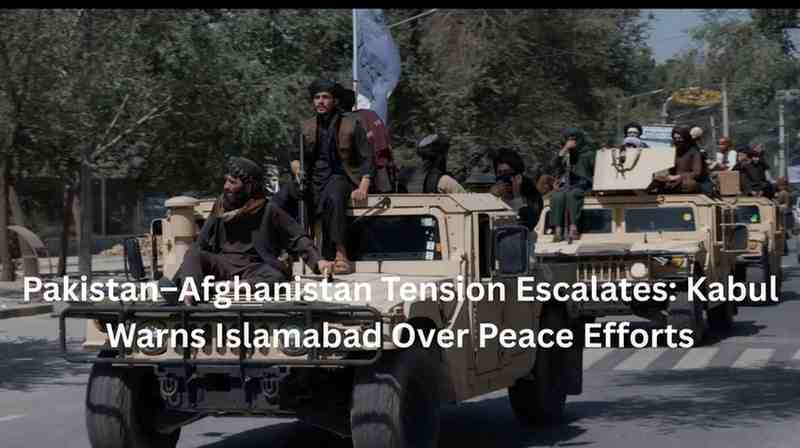Pakistan-Afghanistan Tensions Escalate as Border Clashes Leave Dozens Dead, Regional Powers Call for Calm

Tensions between Pakistan and Afghanistan have surged to alarming levels following one of the most violent confrontations along their shared border in recent years. Both nations are trading accusations after deadly overnight clashes that have left dozens of soldiers dead and several key checkpoints under dispute.
Taliban Claims Major Gains in Cross-Border Skirmish
According to the Taliban-led Afghan government, its forces carried out a series of overnight operations targeting Pakistani military positions near the border. Afghan officials claimed that the assault resulted in the deaths of more than 58 Pakistani soldiers and allowed their troops to take control of around 25 military checkpoints.
However, Pakistan’s military has strongly refuted these claims, acknowledging only 23 casualties and calling Afghanistan’s statements “baseless and exaggerated propaganda.” Pakistani officials accused Kabul of fabricating numbers to “divert attention from its internal issues.”
Airstrikes Trigger Border Violence
Sources suggest that the latest round of violence began after Pakistan reportedly launched airstrikes inside Afghan territory, accusing the Taliban government of providing safe haven to militant groups responsible for recent terror attacks in Balochistan and Khyber Pakhtunkhwa.
In response, Kabul condemned the airstrikes as a “violation of Afghanistan’s sovereignty”, warning Islamabad against further military actions. The Afghan Foreign Ministry described Pakistan’s move as a “serious breach of international norms” and vowed to defend its borders “by all means necessary.”
Afghan FM Issues Stern Warning to Pakistan
Amid rising tensions, Afghan Foreign Minister Amir Khan Muttaqi delivered a sharp message to Islamabad, warning that if Pakistan “does not want peace and good relations,” then “Afghanistan has other options too.” Muttaqi asserted that Afghan forces had “achieved their objectives” during the operation and had now temporarily paused military activity along the border.
His remarks have further deepened fears of an extended conflict between the two volatile neighbors, who share a long and often contested border stretching over 2,600 kilometers.
Regional and Global Concern Over Escalating Conflict
The latest confrontation has sparked widespread concern across South Asia and the Middle East. Countries including Iran, Saudi Arabia, and Qatar have urged both sides to show restraint and resume diplomatic dialogue. Regional analysts warn that a prolonged conflict could disrupt trade routes, threaten cross-border stability, and worsen humanitarian conditions for families living near the frontier.
Human rights organizations have also voiced concern that renewed hostilities could displace thousands of civilians, particularly in Afghanistan’s eastern provinces, which are already grappling with food insecurity and economic hardship.
Border Crossings Shut, Security Tightened
As of now, key border crossings such as Torkham and Chaman remain closed, halting movement of goods and people between the two countries. Both governments have reportedly increased troop deployments and tightened security measures along high-risk zones.
Trade convoys have been stranded for days, raising fears of supply shortages on both sides. Businesses dependent on cross-border commerce have appealed to both governments to restore normalcy before the situation worsens.
Uncertain Road Ahead
The international community is closely monitoring developments, with calls growing for urgent de-escalation and diplomatic talks. Observers say that unless both sides commit to a peaceful resolution, the region could face a new wave of instability, further complicating efforts for regional cooperation and border security.
For now, the Pakistan-Afghanistan border remains tense, with both militaries on high alert and civilians caught in the crossfire of an unfolding geopolitical standoff.